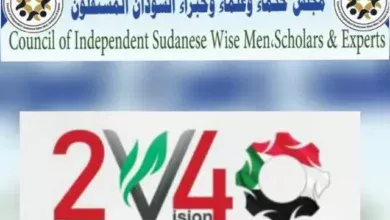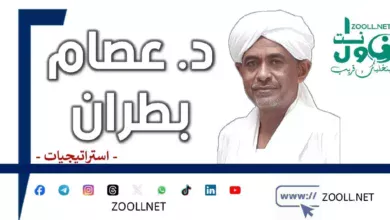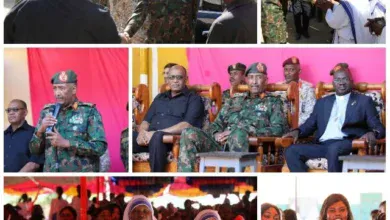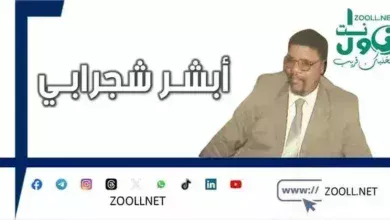Sudanese media is between the rock of conflict and the anvil of national unity – Something for the homeland – ✍️ Mr. Salah Ghariba
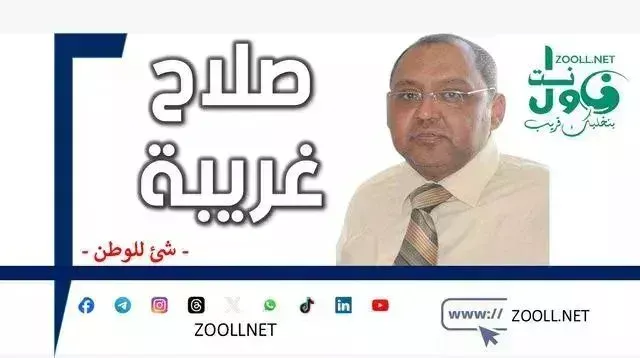
Sudan has witnessed complex political and social conflicts for many years, which have led to deep divisions within the social fabric. In the midst of these accelerating events, the role of the media emerges as a major player in shaping public opinion and steering the course of events. Are the Sudanese media contributing to building a constructive national dialogue or are they deepening divisions and intensifying the conflict? This crucial question requires a careful analysis of the Sudanese media reality and its role in the current crisis.
There is no doubt that Lieutenant General Yasser Al-Atta's statements about Muhammad Hamdan Dagalo's background have sparked widespread controversy in political and media circles. These statements, which came in the context of the ongoing conflict, have deep political connotations. By analyzing these statements, we can deduce several important points, including the use of direct popular discourse, targeting the emotions of the masses, in order to mobilize popular support and attempt to shift the blame for the crisis onto other parties, such as the Islamic Movement.
The Islamic Movement is considered one of the most important political forces in Sudan and has played a central role in the political events that the country has witnessed in recent decades. By analyzing the role of the Islamic Movement, we can extract important points, including the evolution of the role of the Islamic Movement, which has undergone great development over the years, from the role of opposition to participation in the government and then back to opposition, and the Islamic Movement witnesses an internal diversity of visions and ideologies. Reflecting its internal complexities, the Islamic Movement has also been greatly influenced by the events that Sudan has witnessed, which have led to fundamental changes in its composition and performance.
There is no doubt that national unity is the basis for building a strong and stable state. In light of the challenges facing Sudan, achieving national unity has become necessary. Among the most important factors that contribute to achieving national unity are comprehensive dialogue: the national dialogue must include all political and social forces in the country, without exception, and transitional justice: the files of the past must be addressed and justice for the victims must be achieved, as an essential step in building trust between the parties, while building institutions. We must build strong and just state institutions that respect human rights and apply the law to everyone.
The media plays a decisive role in building national dialogue, and it can do this by publishing accurate and objective information. It must be professional and objective in its reporting and stay away from misinformation and rumors. for dialogue between different parties, and give everyone the opportunity… Voices to express their opinions. The media must combat hate speech and incitement to violence, encourage tolerance and coexistence. The media must contribute to strengthening democratic culture and encourage citizens to take action. participate politically.
To achieve a constructive national dialogue, the Sudanese media must be professional and objective, and stay away from extremism and incitement. This can be achieved by training media professionals in professional ethics standards and providing a safe working environment for journalists. The media should also be encouraged to present dialogue programs that provide all parties with the opportunity to express their opinions, in addition to encouraging alternative media. The creation of independent alternative media that contribute to the diversification of media voices can be encouraged, while analyzing the role of social media in building the national dialogue, and how this can be harnessed in a positive manner.
In addition to benefiting from international experiences, particularly South Africa's experience in establishing the Truth and Reconciliation Commission, and how this committee contributed to achieving national reconciliation, in addition to studying Ireland's experience in managing the long-term conflict between Catholics and Protestants and analyzing Nigeria's experience in managing ethnic and religious diversity and how it managed to achieve some stability. South Africa's experience in establishing the Truth and Reconciliation Commission is considered a model to follow in the field of national reconciliation. This committee contributed to revealing the facts about the violations committed under the apartheid regime, took responsibility for these violations and compensated the victims. Sudan can benefit from this experience by establishing a similar committee that contributes to achieving reconciliation between the Sudanese parties.
Building a constructive national dialogue in Sudan requires joint efforts from all parties, including the media. The media is not just a means of transmitting information, but rather a powerful tool for shaping public opinion and building society. The Sudanese media must assume its responsibility in building a better future for the country and contribute to achieving national unity, peace and stability.


